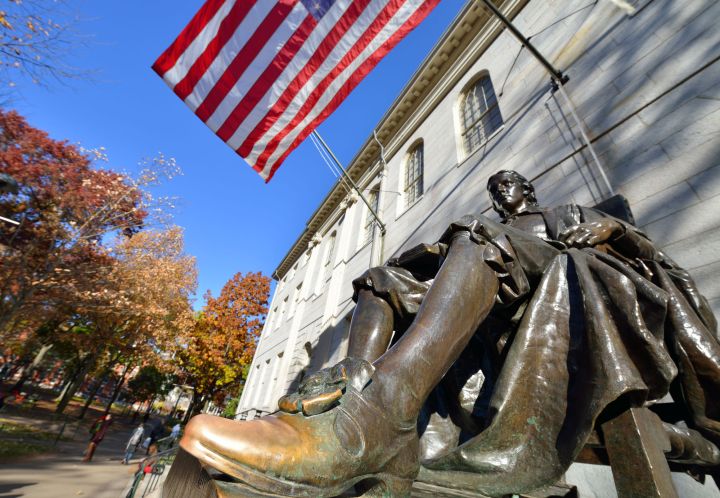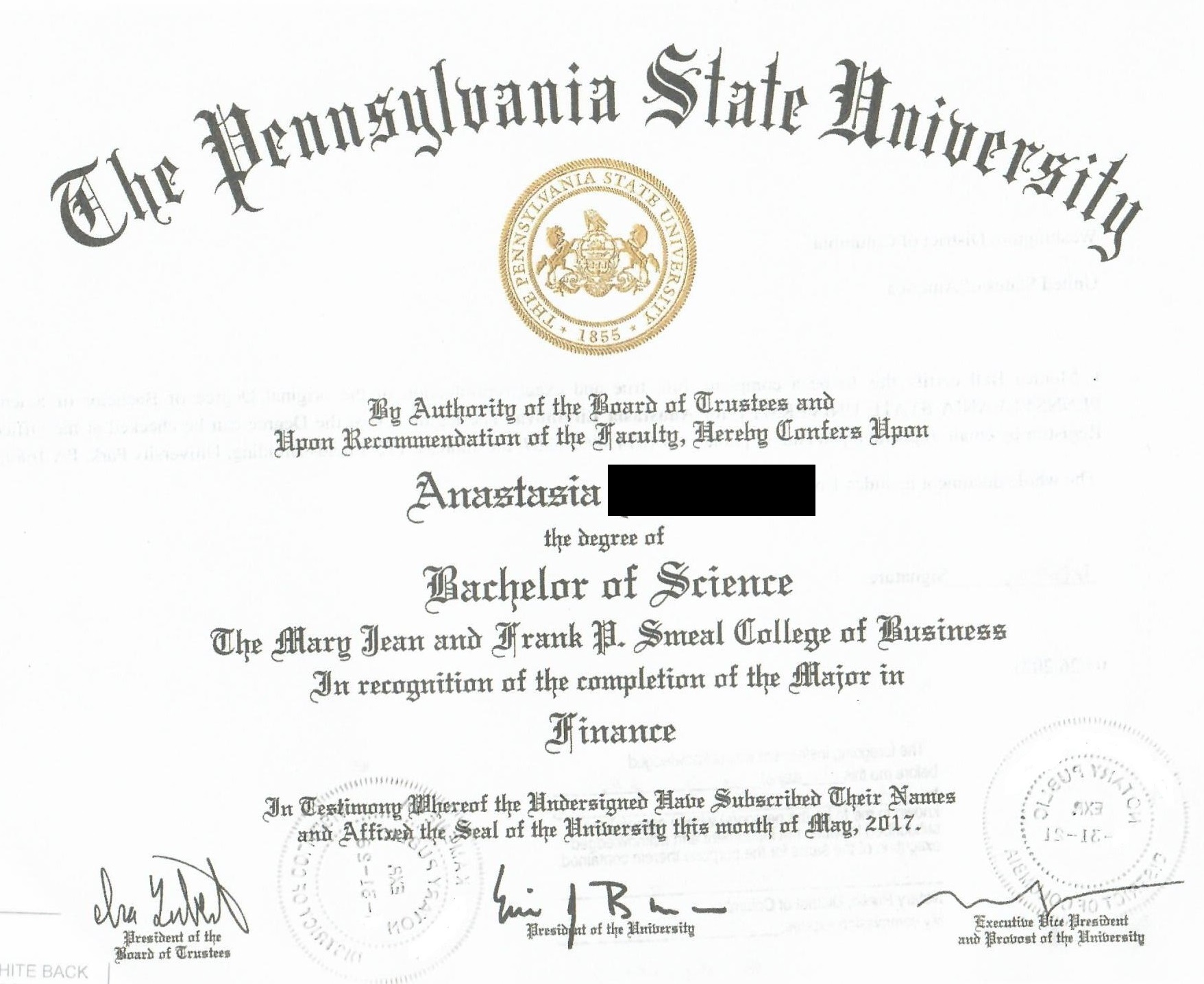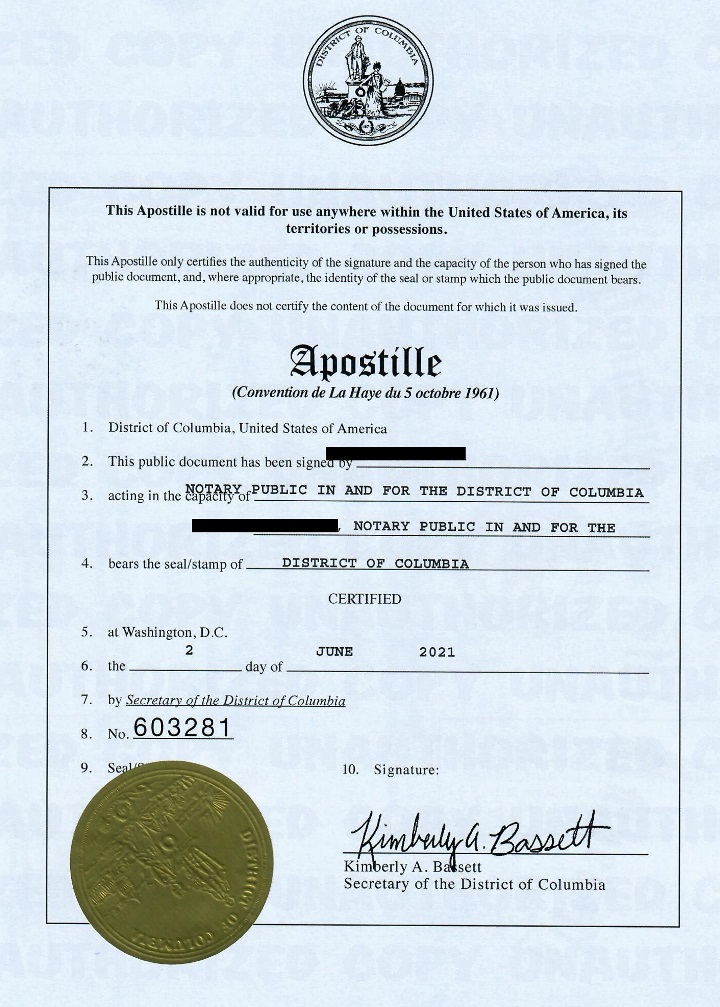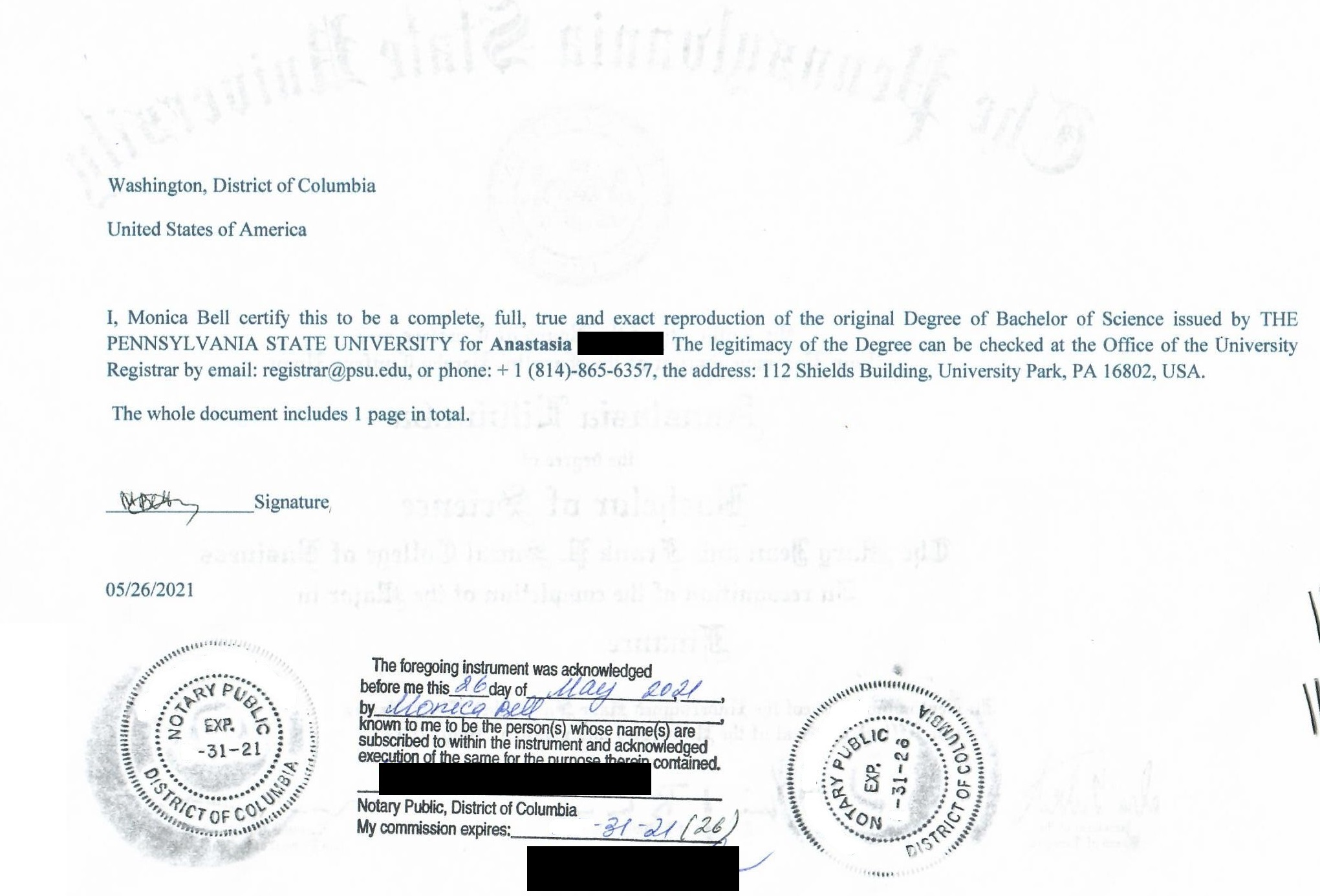
Educational documents such as: diplomas, certificates, college, bachelor's or master's degrees issued in the USA have no official legal validity outside the country. What does this mean in practice? If it is not legalized, you will not be able to use it to pursue graduate or postgraduate study at a foreign institution, or to apply for a public position or regulated profession.
If you intend to use your U.S. certificate in a country that is a member of the 1961 Hague Convention, it may be legalized through a simplified process known as an Apostille.
Why and when do I need an apostille?
An apostille is a special mark that certifies the authenticity of an official document. It can be used to certify the authenticity of documents issued by state institutions, local authorities, as well as entities that have been granted special powers by the state.
Commercial documents cannot be apostilled. Therefore, if you received a certificate of training courses from a private company, which does not have an educational license, you will not be able to certify it with an apostille. Only documents issued by certified educational institutions with an official state license may be legalized through the apostille procedure.

In this case, you should keep in mind that apostilization certifies the fact of document issue and authenticity of the authorized official's signature, but it does not automatically provide access to work in specialized fields (medicine, law, etc.).
An apostille certificate can only be affixed in the country in which the document was issued. This cannot be done through diplomatic or consular offices. The United States system of document apostille is one of the most complex in the world. Depending on the type and origin of the document, three different government systems (state authorities, U.S. State Department, or court officials) may apostille your document. Moreover, if a document must be legalised at the local level, different departments of the local government will take it on in different states.
When is an apostille not necessary?
Most commercial organisations will not require a degree to be legalised by apostille when hiring an employee for a position that does not require restricted access. In addition, certificates do not need to be apostilled if there is special agreement between the US and another country (such as in the case of Canada, which recognises US diplomas under NAFTA (Canada, Mexiko and USA) agreements, when regulated professions are not involved).
What is an apostille?
What is an apostille? Why do I need an apostille? How do I get an apostille? - Our video will explain everything you need to know about the apostille. If you have a document that needs to be certified with an apostille for use abroad, Schmidt and Schmidt will assist you! We provide apostille services in more than 100 countries worldwide.
US Diploma Apostille Procedures

There is no standard apostille process for all educational institutions in the United States. The truth is you need to notarize the rector's (or principal's) signature before you legalize your educational certificate. Notarization procedures are available through the Registrar's Office or a similar office, which is widely used at all U.S. institutions.
After contacting the registrar's office, several scenarios are possible, depending on the practices of the individual institution:
- If the registrar's office has a staff member with notarial powers, the institution itself will certify the signature at the graduate's request. The document can then be taken immediately to the Secretary of State or equivalent for an apostille.
- If the "registrar's office" does not have a notary, but the university staff is willing to carry out the certification process locally, a notary can visit the school to certify the signature. The document can then be taken to the state secretary's office by appointment.
- If, for any reason, the staff of the 'Registrar's Office' are unable to communicate with the notary, they will certify the signature and it will be certified by a third party notary.
Such procedures usually take a very long time - often 2-3 months - so we recommend legalising education documents through a notarised copy taken in the USA.
In Washington D.C. it is possible to obtain a notarised copy of educational documents from an electronic copy of the document. The state of origin is irrelevant, meaning that the procedure applies to any educational document issued in the U.S. by a licensed educational institution.
At the same time, a notary public can certify the authenticity of a scanned certificate. The original is not required for this procedure. When a copy is notarised, the information of the issuing institution is written on the back of the educational document, and then apostilled by the secretary of the state in which the notary is accredited.
Notarisation usually takes 1-2 working days.
After notarization, the documents should be submitted for apostille to the appropriate state authority (secretary or similar official). Depending on the state, this may be done in person or by mail.
It usually takes 1-5 working days to obtain an apostille from the state secretary.
Documents required for legalization:
- A high quality electronic copy of the document (diploma, certificate, transcript, statement);
- If available - electronic copy of diploma supplement.

The Apostille, although required by the Hague Convention, varies slightly physically from state to state in the United States. Therefore, the specific form of the document after being apostilled will depend on the state in which the apostille is issued.
Shipment of documents
It is possible to notarise a copy of educational documents in the USA using a high quality electronic copy of the document - a scan. Therefore, it is not necessary to send the original document to the USA.
If the rector's signature on the original document must be notarised, you will need to send the original educational documents to the USA.
As a rule, ready documents can be delivered by courier anywhere in the world. However, we can arrange delivery via a third country. Due to existing restrictions, delivery takes 2-3 weeks.
Consular legalization
If your certificate is to be used in a country not party to the Hague Convention, e.g. China, UAE or Egypt, it is subject to consular legalization. This is a more complicated procedure than apostilisation. For educational documents that require consular legalization after being authenticated by the U.S. Department of State or a state office (in some states, the certification requirements for apostille and consular legalization are the same), the document is then legalized through the consulates or consular sections of the embassy of the target country. For each country that is not a member to the Hague Convention, the document needs to be legalised separately.
What is a consular legalization?
In our video we are explaining what a consular legalization is and where to apply for it.
Schmidt & Schmidt will assist you in all issues concerning the legalization.
Schmidt & Schmidt offers legalization in more than 80 countries all over the world.
For how long will my legalization be valid?
There is no set period of validity for the stamp or sticker that is the legalization of your diploma. This is determined by the employer or overseas educational institution requesting the legalised diploma. Check the validity period with the overseas institution requesting your legalised diploma.
Lost or damaged educational certificates
It may still be possible to obtain a duplicate and have it legalised if your qualification meets the requirements but your diploma or certificate has been damaged or lost.
Translation of an education document
In order to use your degree outside the country, after legalization, it is necessary to have it officially translated and authenticated by the by a notary public.
The translation of a document always needs to undergo a verification procedure. It is a process whereby the prepared translation is sent to the graduate in order to check the spelling of the name and surname, the subjects studied, and the topics of research papers, as inaccuracies can occur in the translation.
A certified translation may be affixed to the certificate or a notarised copy thereof.





